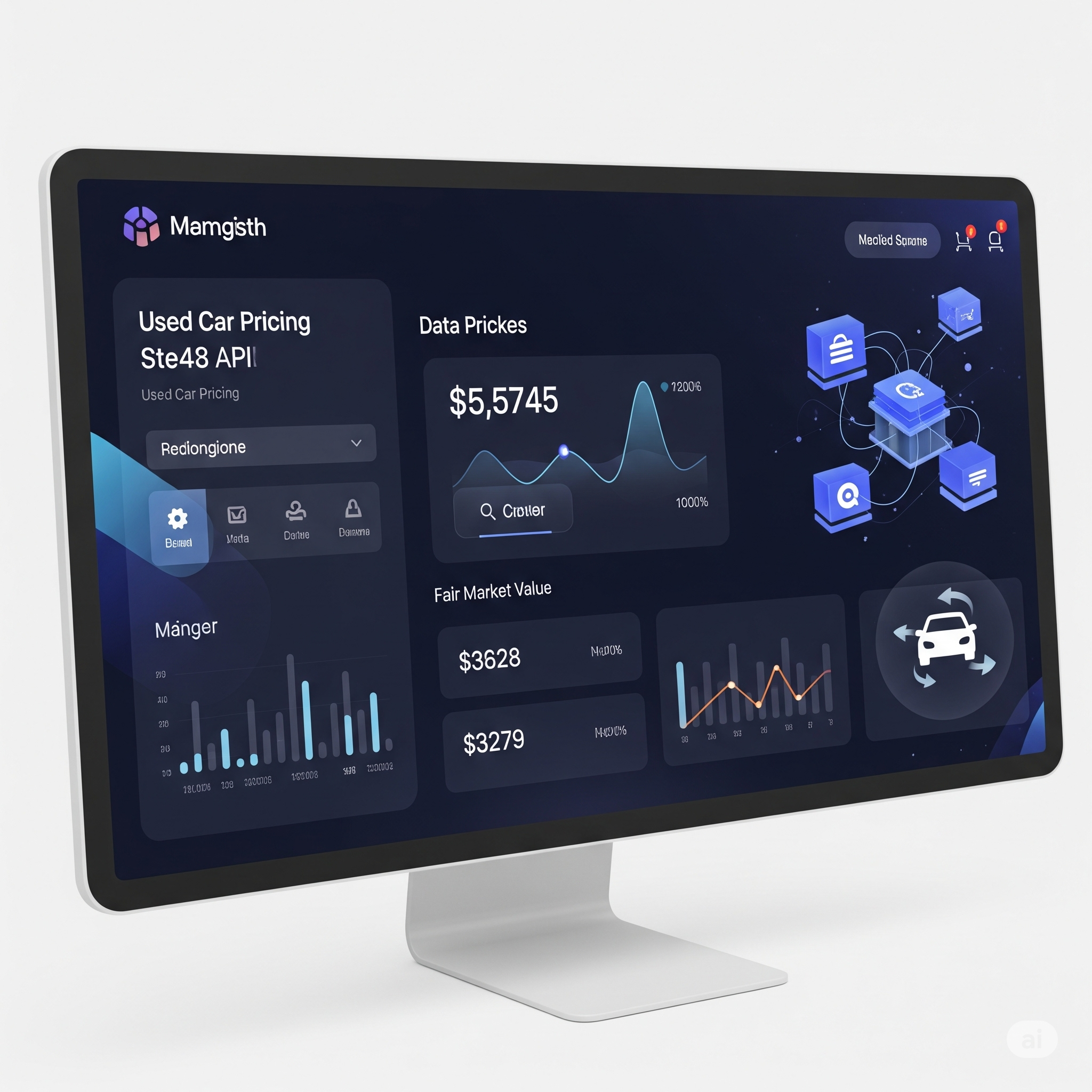How to Calculate Fair Market Value for Used Cars Using Data APIs

Have you ever been concerned if you're paying too much or selling for too little while buying a used car? It may be challenging and stressful to understand the market value of used cars. Traditional pricing statistics might fall short when dealing with hundreds of listings, fluctuating demand, and other factors such as mileage, condition, and accident history. That's why smart automotive businesses and creative car buyers are turning to Data APIs, powerful technologies that use real-time data to deliver exact, location-specific assessments in seconds. Here's a look at how APIs are changing the used car value calculation process and how you can use them to find the best deal.
What Is the Market Value for Used Cars?
Market value refers to the price at which a used car will probably sell in a specific market, considering factors such as year, make, model, mileage, condition, location, and current demand. True market value is based on real-world data, not company suggestions or outdated blue book values.
Knowing this value is critical whether you’re:
- A buyer trying to avoid overpaying
- A seller pricing a vehicle to move quickly
- A dealer aiming to manage inventory profitably
And with today’s fast-moving car market, having real-time insights is no longer optional, it's essential.
Why Traditional Valuation Tools Fall Short
For years, people relied on books or static websites that estimated vehicle value based on generic data. The problem? These tools often:
- Don’t adjust for current market trends
- Fail to factor in detailed vehicle history
- Lack local context (pricing can vary drastically by region)
- Provide wide price ranges that don’t help during negotiations
You need a smarter way to access up-to-date, VIN-specific data.
How Data APIs Improve Car Valuation
Data APIs perform like supercharged connections, pulling price insights from numerous live sources (online listings, dealer databases, auctions, and more) and delivering exact, specific outcomes quickly.
When integrated into platforms like CarsXE, these APIs let users:
- Check live prices of similar vehicles in the same area
- Adjust for mileage, trim, accident reports, and more
- Get resale values based on real-time supply and demand
- Avoid overpricing or underpricing a listing
- Make fast, confident pricing decisions backed by facts
How to Use APIs to Calculate Market Value
Here’s a step-by-step overview of how a system like CarsXE’s Data API works when calculating the market value for used cars:
- Input the VIN or vehicle details: Start with the unique identifier so the API knows exactly what vehicle you’re referring to.
- Pull live data: The API fetches real-time listings, past sale prices, history reports, and other relevant info.
- Analyze vehicle-specific factors: Things like mileage, service history, accidents, and condition impact the value and the API adjusts accordingly.
- Get a precise market value: The platform returns a number (or range) reflecting what similar cars are going for in your market, right now.
- Use it to guide your transaction: Whether you're buying, selling, or trading in, you now have pricing data you can trust.
Who Benefits the Most from These Insights?
- Buyers: Prevent overpaying and recognize a fair deal when they see one.
- Sellers: Price competitively from day one and reduce time on the market.
- Dealers: Manage inventory more effectively and improve profit margins.
- Auto app developers: Enhance their platforms with tools users trust and rely on.
Key Factors That Influence Market Value
APIs consider many data points to generate accurate values. Some of the most important include:
- Mileage: Lower mileage usually means higher value.
- Vehicle history: Accidents, flood damage, or service records can dramatically impact price.
- Geographic location: A car in New York might be valued differently than the same model in Phoenix.
- Trim level and add-ons: Premium packages, technology upgrades, and special features matter.
- Current market trends: Seasonal demand or shortages of certain models will shift values up or down.
Without data APIs, tracking all these variables manually would be nearly impossible.
Key Takeaways
- The market value for used cars is dynamic and influenced by many real-world factors.
- Traditional tools often don’t provide enough context or current data to price accurately.
- APIs like those from CarsXE deliver VIN-specific, location-based, and trend-driven valuations.
- Reliable data helps buyers, sellers, and dealers make better decisions more quickly.
- Transparency and trust are increased when automotive data APIs are integrated into platforms or apps.
Final Thoughts
Knowing the market value for used cars is no more a guesswork game; it's about having the correct information at your fingertips. Tools like CarsXE's Data API provide you the advantage of information whether you're buying a new car or flipping cars.
As the used car market changes, staying ahead requires developing solutions that are rapid, precise, and optimized for today's data-driven world. The right API enables you to understand value rather than simply estimate it.
FAQs
1. Which method is the most reliable to calculate a used car's market value?The most up-to-date and accurate method is to use a data API, like CarsXE's, which collects data in real-time from thousands of sources.
2. Can APIs help price cars based on specific location?Yes, APIs consider regional pricing trends, making them more reliable than national averages or static price books.
3. Are Data APIs useful for individuals or just car dealers?Both! Buyers, sellers, and dealerships can all benefit from the insights provided by data APIs.
4. How often is the data updated?CarsXE and similar APIs pull from live listings and databases, offering constantly refreshed data to reflect market changes.
5. Is the API data different from a vehicle history report?Yes. While history reports cover ownership and accident history, APIs provide pricing insights based on that data plus market trends.